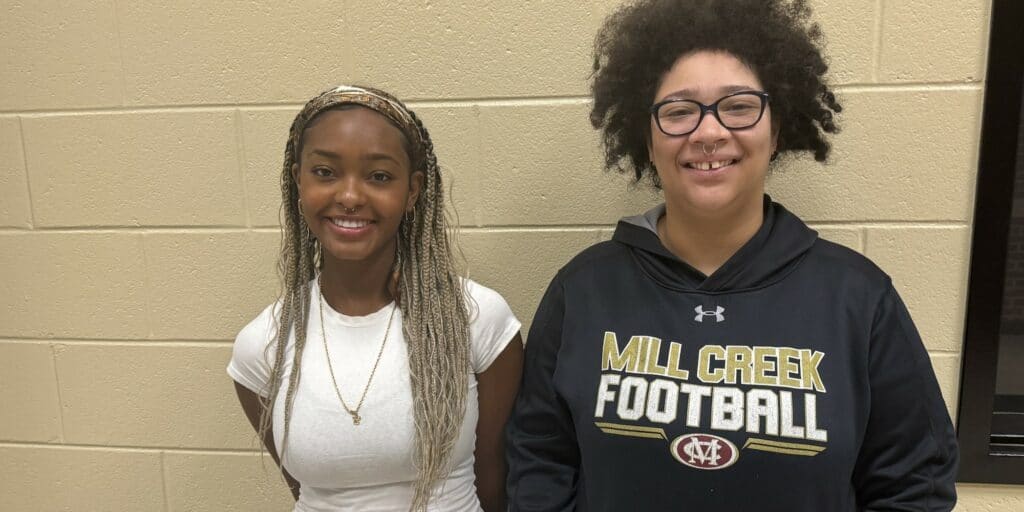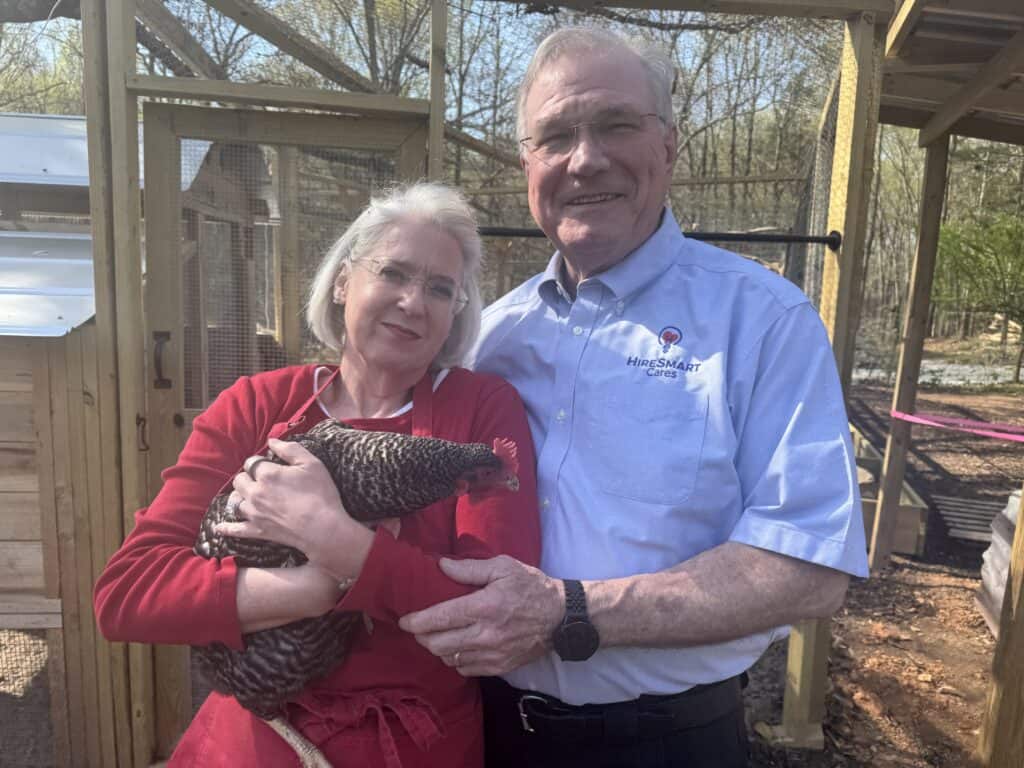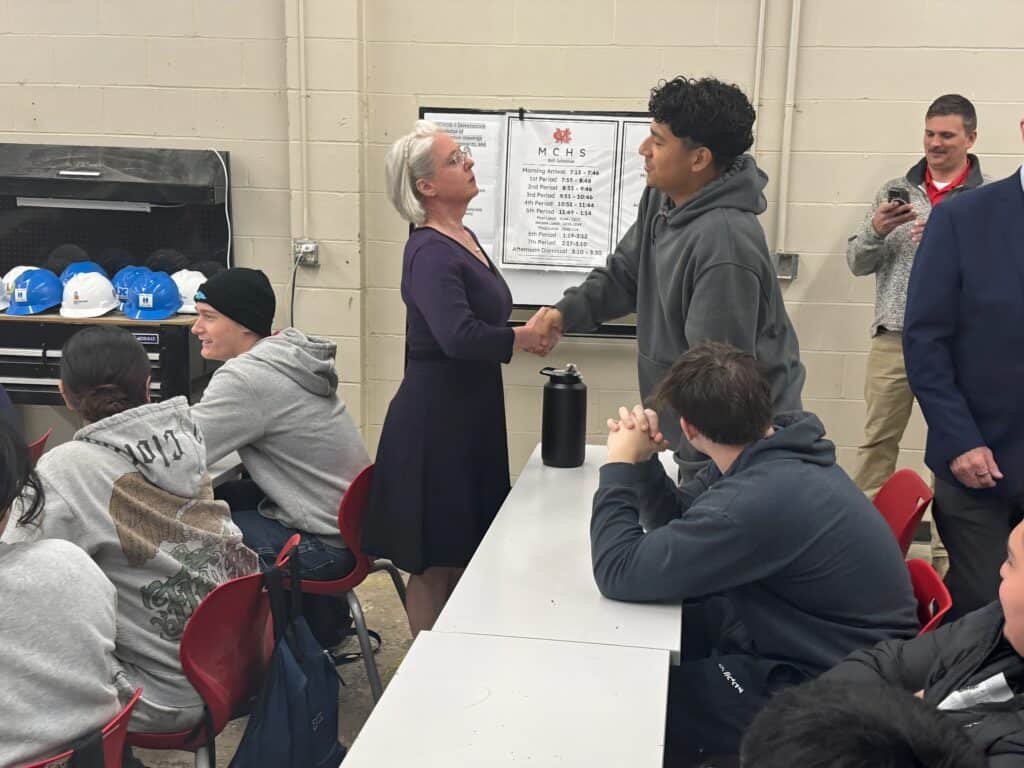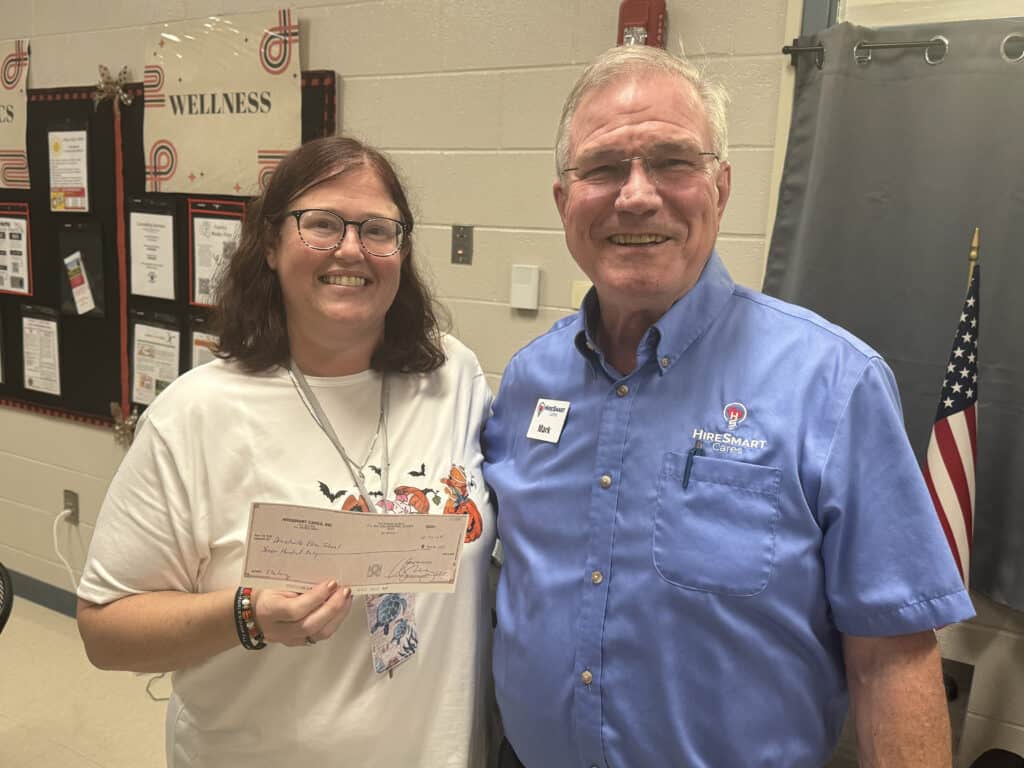Keep up with the Latest

Vann, Puckett Win Prizes in HireSmart Book Design Contest
Jayah Vann earned the $500 top prize for a recent book cover design contest at Commerce High School, while Katrina Puckett took second place and earned $200. Both designed covers for "The Hustle Handbook: Lessons They Don't Teach You IN SCHOOL, but Life Will," by Mark Lackey, Co-founder of HireSmart Cares, a local nonprofit focused…

Supporting Farmers of Tomorrow: The Mission Behind HireSmart Cares
Anne Lackey rises early each morning to tend her chickens, a daily ritual that connects her to the agricultural heritage of Madison County. It's a small but meaningful practice for someone who once lived surrounded by the concrete and commerce of Gwinnett County. "I love my chickens!" said Anne, whose egg-laying crew all have Flintstone-themed…

HireSmart Founders Share Job-Seeking Tips with MCHS Construction Students
"How am I going to support myself as an adult?" This question looms large for high school students contemplating their futures. While many teens consider college as their best path, others are discovering rewarding careers in trades and agriculture — sectors experiencing significant workforce shortages. In Madison County, Georgia, HireSmart Cares founders Mark and Anne…

HireSmart Covers Cost of Shelving for Construction Class
Danielsville Elementary School construction teacher Christy Hanson recently received a check for $700 from HireSmart Cares Co-founder Mark Lackey. The grant covered the cost of mobile shelving for the school's construction class materials. "The shelves have come in so handy for us," said Hanson, whose fourth and fifth-grade students learn the construction basics. "I can…
Hands-on Skills: HireSmart Supports New Elementary School Construction Teacher
Although the school year is young, Christy Hanson already sees her Danielsville Elementary School construction students gaining confidence in their hands-on abilities. "I can see a difference already in just a couple of weeks that I've been with them," she said. Hanson said she's particularly thrilled to see girls learning how to use a miter…

HireSmart Founders Tell Students Entrepreneurship Must Be Rooted In Passion
HireSmart Cares founders Mark and Anne Lackey are addicted to entrepreneurship, having successfully run multiple multi-million dollar businesses. They love sharing tips with anyone aiming to launch a business. But their first word of advice is always — be ready to live frugally. "How many of you like to work and not get paid?" Anne…

HireSmart Founders Talk With Teens About Being Smart With That Paycheck
You landed the job, and And you got that paycheck. Yay! Now what? HireSmart Cares founders Mark and Anne Lackey recently talked about personal finances with students in Melinda Cochran-Davis’s construction classes at Jackson Empower College and Career Center in Jefferson, Georgia. What does it take to live? Mark and Anne praised Cochran-Davis’s work with…
